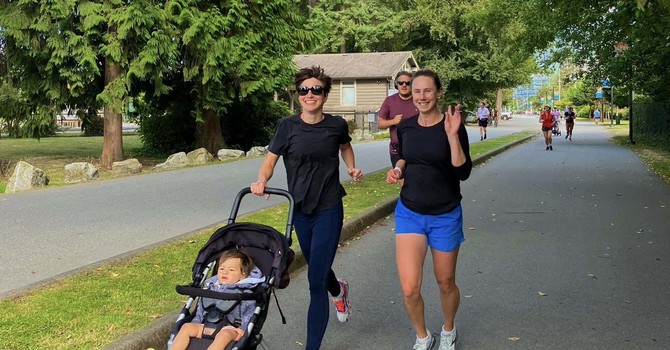
Menopause is a natural process which, like the onset of menstruation, is completely normal. Menopause is a phase of a woman’s life that marks the end to her ability to get pregnant and an end to her menstrual cycles. Medically speaking, menopause starts when there has been no menstruation for one year. Menopause is brought on by changing hormone levels (primarily estrogen) during the perimenopause (years leading up to menopause). Every woman will have a different experience of this stage of their life and women will experience different types, amounts and intensities of symptoms during these times. For some, menopause can be a challenging time with many physical and mental struggles; for others, it is an easier stage of life, and, for others who experienced painful periods, for example, it is a time of relief.
So how does it start? In the transitional stage, or perimenopause, many women will start to notice their periods becoming more irregular over a few years until they notice that they stop altogether. Perimenopause usually starts during a woman’s 40’s and it is accompanied by a drop in estrogen. It is still possible to get pregnant in this phase, but there may be some symptoms of menopause alongside irregular cycles. This can last a few years.
Once into menopause, some of the symptoms that a woman may experience include but are not limited to::
- Decreased bone density and muscle mass
- Urinary incontinence
- Increased urinary frequency
- Increased urinary tract infections
- Pelvic organ prolapse
- Decreased breast fullness
- Hair loss
- Facial hair growth
- Decreased libido
- Vaginal dryness
- Hot flushes
- Chills
- Weight gain/slowed metabolic rates
- Painful/stiff/achy joints
- Headaches
- Memory problems
- Anxiety or depression
It is important to note that there are reasons besides natural changes that may bring on menopause prematurely, such as chemotherapy, radiation, surgical removal of the reproductive organs, and other conditions.
How can Physiotherapy help?
At Hollyburn Physiotherapy Clinic, we like to explain Pelvic Health Physiotherapy as care for people at every stage of their life. Although there is often a lot of focus on Pelvic Health Physiotherapy for pregnancy and the child-bearing years (this is often what is most recognized in the media), we also specialize in treating bladder and bowel dysfunction, pelvic organ prolapse, pelvic/abdominal pain, post-surgery sexual dysfunction and are experts in exercise prescription. These issues may occur at any life-stage, but as you can see from the menopause symptoms list, they are are commonly experienced in menopause.
We often find that listening, education and empowerment are our most valuable tools – and we want to share a few tips for helping to manage some of your menopause symptoms.
- Exercise and movement is key. Regular exercise and fitness during menopause may help to prevent weight gain and muscle mass loss, strengthen your bones, help with mood and improve sleep. Try to aim for 150 minutes of moderate aerobic exercise (such as brisk walking, jogging, biking) per week; alternatively you can perform 75 minutes of vigorous activity. Whole body strengthening exercises should be performed 2x/week (for example, weight machines, hand-held weights or resistance bands). Please remember to get approval from a health-care provider before starting any exercise program.
- Make sleep a priority! A healthy and regular sleeping pattern will help you stay energized, improve mood, and help your body process chemicals and hormones effectively.
- Self-care is imperative. Take time to have fun, laugh and use your support networks – remember, many of your friends will likely be going through the same things. Eat a nutritious diet and take time out to rest and recharge as you need.
- If you have any pelvic health issues (including any we have listed above), book in to see a Pelvic Health Physiotherapist, or seek advice from your trusted health care provider.
As Pelvic Health Physiotherapists, we are strong advocates for new research and promoting awareness around subjects that affect the pelvic region and may be underserved – such as menopause. Our main goal is to help everybody thrive and enable them to lead a full, rich life, no matter what stage of their life they are in. We are in the opportune and fortunate position to be able to take an overview of the whole person – not just their pelvis (for example) - in order to take a truly holistic approach to Pelvic Health.
Francesca Ruddick
Contact Me


